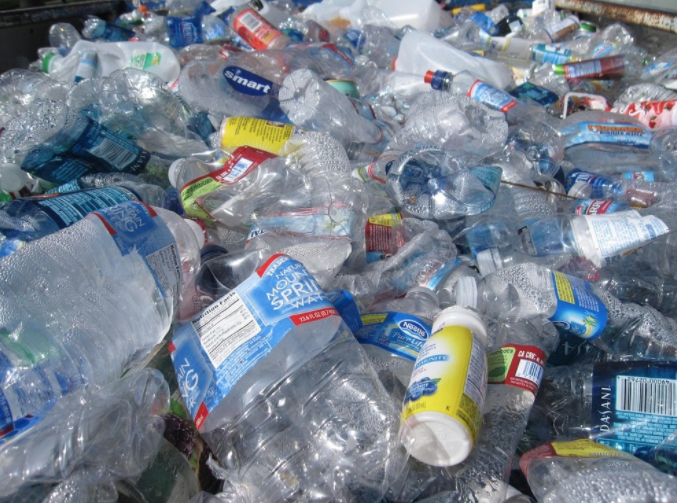‘Super-Enzyme’ Breaks Down Plastics
- icshealthsciencejournal

- Oct 10, 2020
- 2 min read
‘Super-Enzyme’ Breaks Down Plastics
Written By: Kandharika Bamrungketudom
October 10, 2020
The University of Portsmouth has, for some time, been studying synthetic enzymes called the “super-enzyme,” which could break down plastic in the span of a few days. One of the versions of this enzyme, called the PETase, was engineered back in 2018 by Professor John Mc Geehan, the director of the Centre for Enzyme Innovation (CEI) at the University of Portsmouth, and his team. This enzyme was able to convert polyethylene terephthalate (PET) — a type of plastic that is used for soft drinks and fruit juice packages — back to its monomers (building blocks) in a short amount of time.
This so-called “super-enzyme” is made up of two enzymes: PETase and METase, which are produced by a plastic-feeding bacteria called Ideonella sakaiensis. Following the discovery back in 2018, the METase was added into the PETase and the result yielded a plastic degrading enzyme that has the rate double that containing only PETase. Using genetic engineering, the two enzymes were then connected together to form an even more effective PET degrader, speeding up the process six-fold from PETase alone.
Along with PET, this super-enzyme is also able to degrade another type of plastic called polyethylene furoate (PEF), which is used for beer bottles. However, the super-enzyme is not able to break down any other type of plastic other than the two mentioned previously. These include HDPE (used for shampoo bottles), LDPE (used for bags), PP (used for potato chip bags), PS (used for plates and cups), and EPS (used for protective packages).
The discovery of this enzyme could potentially play a major role in the future to help degrade plastic waste. As of the present, 300 million tonnes of plastic waste is produced per year. At its own rate, it can take plastics up to a hundred years to convert back into its monomers. Because of this long process, only 9% of the plastics produced have ever been recycled. The rest either end up in landfill sites or are incinerated. In addition to that, plastics that are disposed into the oceans can also harm the environment when they break into microplastics through their exposure to sunlight.
Due to the slow degradation of plastic, the monomers for new plastics are derived from oil and gas. Not only is this unsustainable, but the usage of additional resources also contributes to more waste on top of those in the process of degrading. The hope with this super-enzyme is that it would be able to break down plastic wastes very quickly to the point where new plastics can be used from the degraded plastics’ monomers. This would bring a cycle of plastic production where it is “made and reused endlessly” and this will then “[reduce] our reliance on fossil resources.”
This project has received investments from both the Research England Expanding Excellence Fund and the University of Portsmouth in order to accelerate the development of the enzymes. As of the present, the researchers are looking to find a way to speed up the breakdown process of plastics even faster so that the enzymes could be used for commercial purposes in the future.






Comments